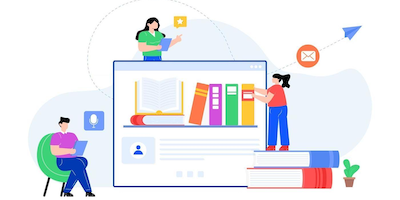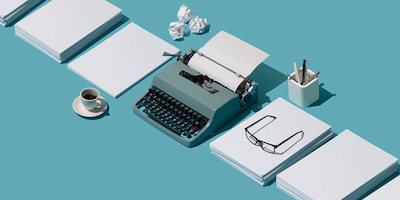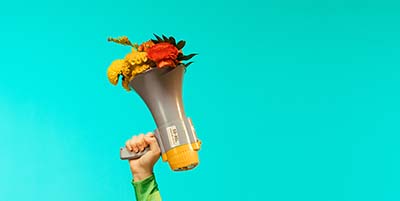Your Cart is Empty
An Interview with Literary Agent & YA/Kidlit Expert Ali McDonald
April 18, 2019 4 min read

For this post we interviewed literary agent Ali McDonald. She’s the lead agent specializing in YA (Young Adult) and children’s literature at literary agency The Rights Factory in Toronto.
So You Want to Write?: So first question, why don’t we dive right in? Do you have any tips for choosing the right literary agent?
Ali McDonald: It’s a really difficult process, finding the right literary agent. Because it’s all really about fit, and finding the right agent for you, for your specific work, for what you want for your career.
For me it’s about doing your homework and then approaching that agent with a very tailored, polished query letter, a very personalized approach. We live in a relationship economy and it’s very important to come to your agent relationship with that long-term, partner-style relationship in mind.
Start with doing your homework. Honestly for me, the first place to go is to think about what your book is; look at other books that you’ve read that are like your book, that you admire, and turn to the back of those books and look at the acknowledgements to see who the agent is on those books. Then look into those agents specifically as a good fit for you and your work.
"It’s very important to come to your agent relationship with that long-term, partner-style relationship in mind."
SYWW: That’s great advice, thanks. Diving into the next question: What are YA publishers looking for in 2019?
AM: Well it’s funny, we talk about trends in the industry, but realistically we shouldn’t be talking about what YA publishers are looking for in 2019, we should be talking about what YA publishers are looking for in 2021, because that’s the year we’re acquiring books for right now.
So it’s not about what’s cool and what’s happening with books coming out at the moment, it’s looking ahead and being visionary about what’s going to be cool and happening in 2 or 3 years from now.
And you know everything is cyclical. For years paranormal was completely out and we couldn’t do vampires or werewolves post-Twilight. But you know, my editors are talking werewolves again, they’re asking for it! It’s sort of an every 10 years thing.
Right now the main thing that’s extremely important is inclusivity, and writing from a very authentic, own-voices perspective for any genre, for any piece of work.
"Right now the main thing that’s extremely important is inclusivity"
SYWW: What mistakes do you see YA writers making and how can they fix these?
AM: I think the #1 problematic thing that I see with new YA writers—because I love working with debut writers, they just have such infinite potential—is that there’s a lot of parroting of authors who, or works that have inspired them; similarities between their work and authors that they admire.
What we’re really looking for are fresh, original, authentic new voices. The thing to do is, as a writer, look deep inside yourself and find that thing that is quintessentially you. Your specific voice, instead of trying to sound like a writer that you idolize. We have a John Green already.
"What we’re really looking for are fresh, original, authentic new voices."
SYWW: I’m sure you see a number of manuscripts and I’m guessing that you see a number of them with things that make you groan - what are those things that you see when you read a manuscript?
AM: Definitely the parroting again. Work that sounds like other work.
I think in this day and age the toughest thing for me are stereotypes in terms of character, with genre, but especially in terms of diversity.
We have to be so careful with how we’re portraying people with identities that exist outside of our own identity. And when we rely on stereotypes we perpetuate negative images.
For me it’s really about getting away from stereotypes. I don’t mind a love triangle—I love a good trope—but I don’t want my love triangle to be the blond and the brunette and which one am I going to choose?
I want to see something a little different, the individual take on the genre or the trope.
"For me it’s really about getting away from stereotypes."
SYWW: What do you love to see in a query letter?
AM: Honestly I just really want to see some personality. I want to get to know you a little bit. And balancing that with also being very professional.
The first thing I want to see is a great pitch about the story. I want to see the hook, I want to see the stakes, and then in the biography to get to know you a little bit, and see that you’re a real person in the world that I might get along with and enjoy working with.
So keeping it professional, but also giving me a bit of personality is a query letter that I’m going to love.
"Keep it professional, but also give me a bit of personality"
SYWW: Well thanks Ali, I think this has been very helpful for our members. Thanks so much, Ali.
AM: Thanks for having me, Mike
***
Check out our popular How to Write YA & Kidlit Workshop or book a 1-on-1 session with an agent to discuss & improve your book.
Leave a comment
Comments will be approved before showing up.
Also in So You Want to Write? Blog

How to Build an Author Platform to Market Your Work
November 07, 2022 4 min read
Here's how to build an author platform that attracts readers that will buy your book(s).
Read More
4 Types of Writers, and How to Set Goals According to Your Type
October 31, 2022 7 min read
Here's how to set writing goals that actually stick, and inspire you to become the best writer you can be.
Read More
